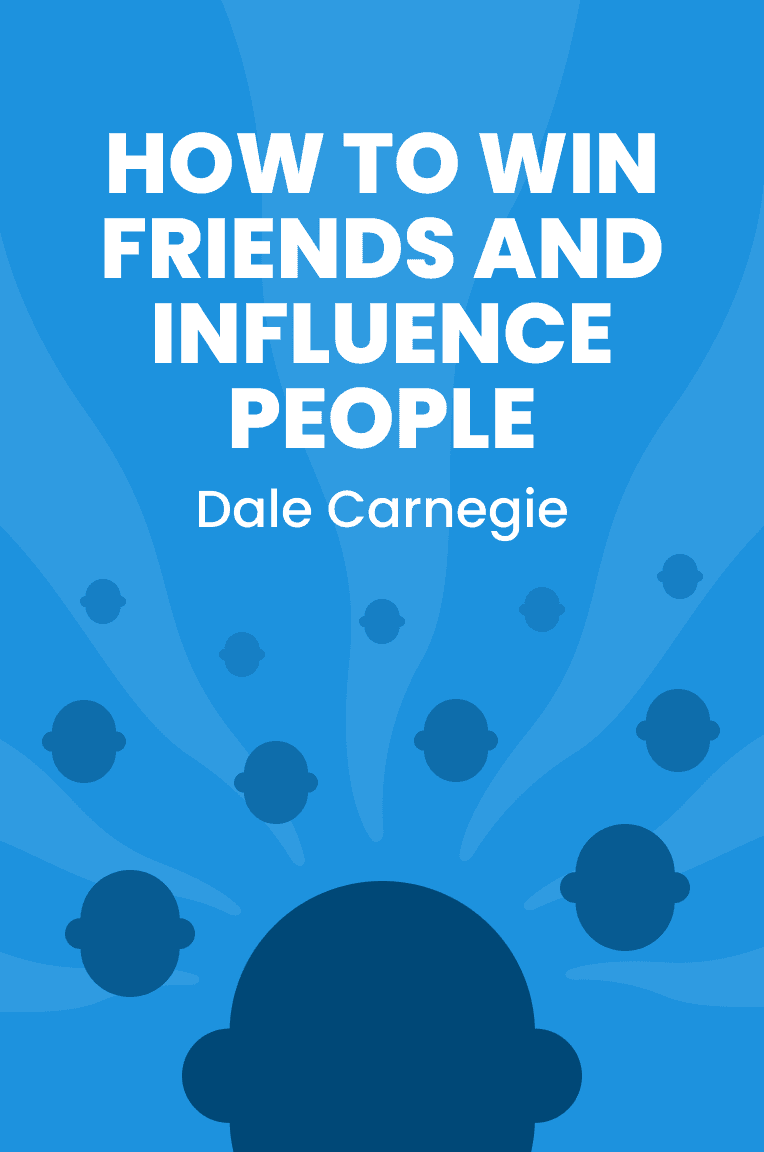How to Win Friends and Influence People
Dale Carnegie
Vista general
LO QUE APRENDERÁS
"How to Win Friends and Influence People" is your roadmap to the invaluable: the art of connecting with others. The author, Dale Carnegie, distills decades of wisdom into this timeless guide.
This classic book is filled with practical advice for forging sincere friendships and making a good impression. It discusses the importance of listening attentively, understanding others' emotions, and communicating correctly, as well as how to handle conflicts with empathy and respect.
Discover how small actions can have a massive impact. Open the way to authentic friendships, effective leadership, and the ability to positively influence people.
Puntos Clave
Keys to Positive Influence
Empathy and Recognition: Understanding and acknowledging others fosters cooperation and mutual respect, overcoming the barriers of criticism and judgment.
Appreciation and Valuation: Sincere recognition strengthens relationships and motivates positive behaviors, satisfying the fundamental human desire to be valued.
Adaptation and Connection: Adapting to the preferences of others is crucial for effective influence, both personally and professionally, building authentic connections based on consideration and mutual understanding.
Building Authentic Connections
Attitude and Gestures of Appreciation: Genuine connections are built with positive attitudes and sincere gestures of appreciation, rather than with wealth or external appearance.
Empathy and Active Listening: Being a good conversationalist involves listening with attention and empathy, encouraging others to share their experiences and emotions to strengthen bonds.
Recognition and Consideration: Recognition and appreciation toward others, even in simple details like a sincere compliment, can transform someone's day and significantly strengthen human connections.
Resolving Conflicts with Empathy and Respect
Avoid Winning at All Costs: Trying to win an argument only increases resentment and can damage relationships, as focusing on highlighting mistakes hurts the dignity of others.
Humility and Consideration: Accepting the possibility of being wrong and approaching differences with humility fosters constructive dialogue and strengthens relationships by considering diverse perspectives.
Honesty and Recognition: Openly acknowledging mistakes without defensiveness can transform conflicts into favorable situations, as demonstrated by the author's experience when confronted by a police officer in the park.
Mantenete al tanto
de todas las novedades
Simplemente dejanos tu email y nosotros te avisamos todos los avances










